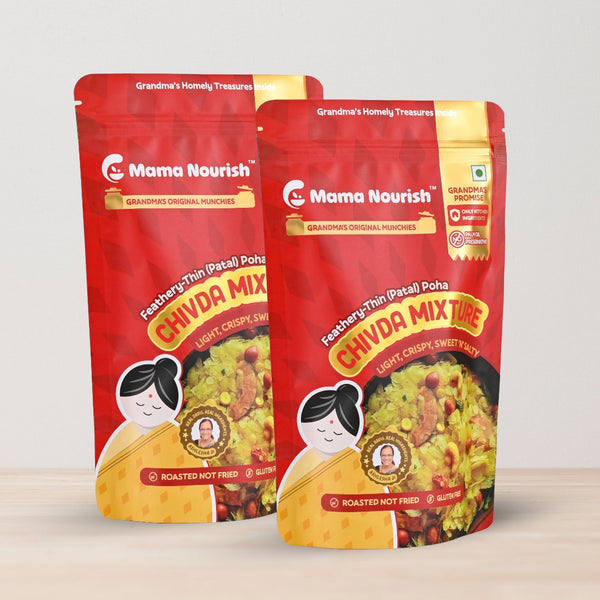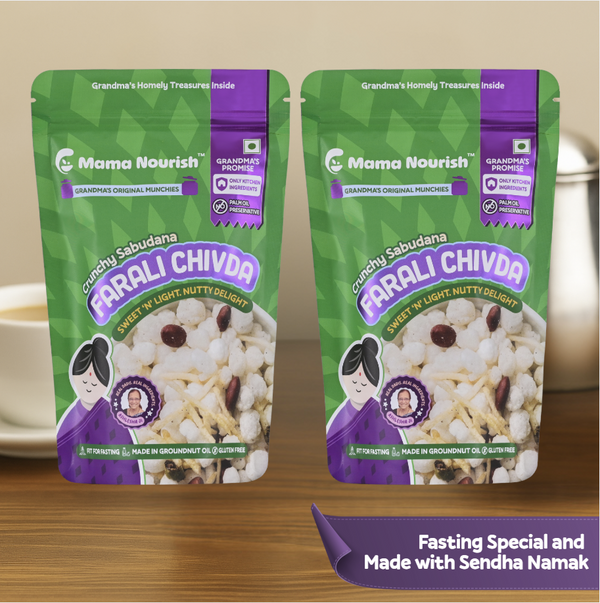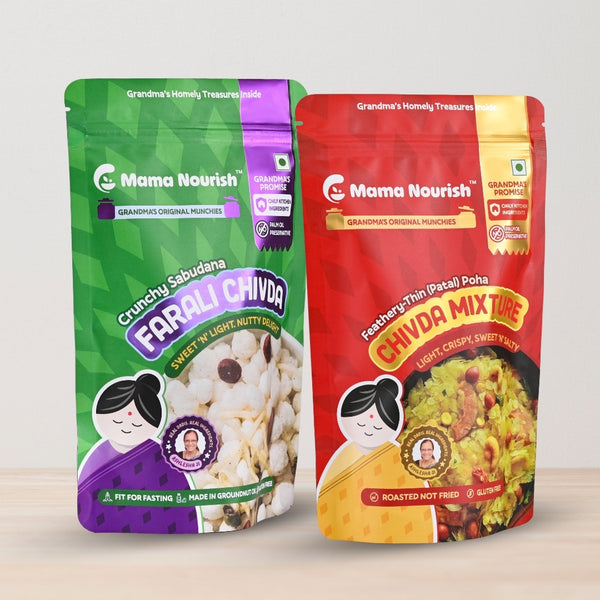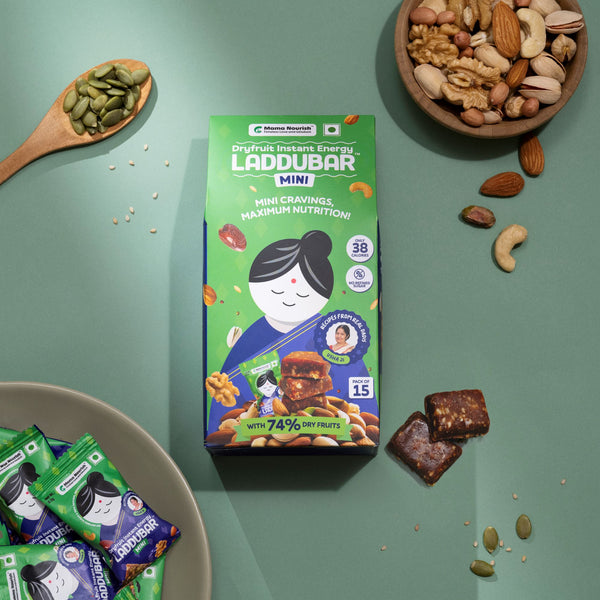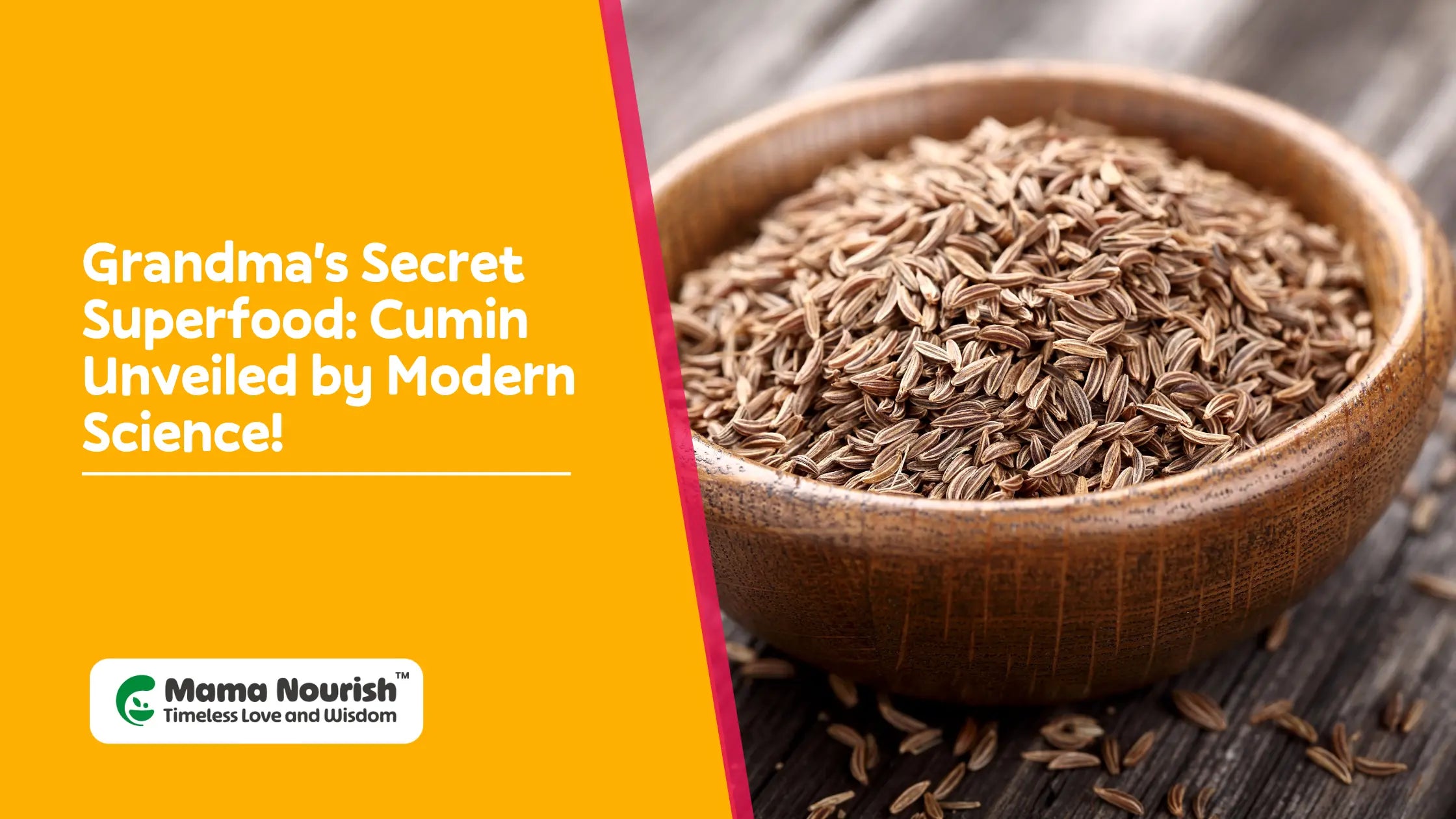
Grandma's Secret Superfood: Cumin Unveiled by Modern Science!
Pooja thought about her weekend cooking plans, wondering what dishes to prepare.
To find some healthy dishes, She delved into her grandma's recipe book.
Her son, baby Rahul, also joined the fun, with his starry eyes gazing at the pages and pinky fingers tightly held with all seriousness.
While going through the recipes, a fact suddenly hit Pooja—almost all the recipes, from snacks to drinks to curries to rice, all had one ingredient in common: cumin!
She started thinking that cumin has excellent flavour, but besides flavour, what makes it so omnipresent? Why it's in almost everything we love to eat?
Have you ever wondered about the omnipresence of our humble cumin in thousands of Indian dishes across the country? The cumin obtained from the flowering plant Cuminum cyminum is a must for tempering curries, crafting traditional snacks, flavouring rice dishes, and making various drinks. Besides being a revered condiment in our kitchens, cumin is a celebrated medicinal ingredient in Ayurvedic treatments.

The culinary legacy of cumin is attributed not only to its rich flavour but also to its health benefits.
Let's explore the health benefits of cumin.
Wellness in a Pinch: Cumin's Top 5 Superpowers!

1. A Nutritional Powerhouse
- Your perfect source for Iron, manganese and magnesium.
- high on protein and fibre
- Packed with B vitamins and vitamins E.
- It contains antioxidants like terpenes, phenols, and flavonoids, which are good for overall health and prevent chronic illness.
To know the full nutritional profile of cumin refer to the table at the bottom.
2. Easy Digestion, Happy Gut!
Have you heard your grandmother saying that jeera water is good for digestion? Well, this age-old wisdom is now validated by scientific studies.
According to a 2008 study cumin extract enhances digestive enzymatic activity and has potential as a bionutrient. The studies show that the cumin extracts lead to an increase in the activity of enzymes like amylase, lipase and protease, which facilitates digestion.
3. Your Perfect Weight Loss Ally
Obesity is a major concern worldwide. According to WHO, in 2016, globally, more than 1.9 billion adults were overweight, and the World Obesity Atlas 2023, published by the World Obesity Federation, predicts that more than half the world population will be overweight and obese within the next 12 years if preventive measures and treatments do not improve. In this context, the cumin’s ability to promote weight loss becomes significant.
The cumin intake can influence weight loss and improve metabolic profiles. Indicating its relevance in weight reduction.
4. Say Goodbye to High Cholesterol!
Cumin consumption may lead to a significant reduction in bad cholesterol.
According to a 2014 study, the cumin extract has been shown to affect various lipid parameters in patients with hypercholesterolemia. Hence, cumin consumption may lead to a significant reduction in bad cholesterol.
5. Your Go-To Superfood for Keeping Blood Sugar in Check
The consumption of cumin may lead to a significant reduction in serum insulin levels and potentially reduce blood sugar levels.
In addition to the above-mentioned health benefits, cumin may promote lactation in new mothers, and it exhibits strong antimicrobial properties,s, which may prevent numerous infections.
With so many health benefits, it is a must in your diet. There are thousands of Indian dishes with cumin, let's go through a few of the recipes.
Cumin Recipes: Tastier Bites From Tradition!
1. Jal jeera 
Jal jeera is a healthy drink bursting with flavours. It's a combination of cumin, fennel seeds, ginger, tamarind, dried mango powder, black pepper, black salt and mint leaves.
In fact, there are more than thousands of Indian dishes that feature cumin, from ‘tadka’ to preparing curry masalas, from snacks to jeera rice, cumin is pretty much omnipresent in Indian kitchens
2. Cumin Water/ Jeera Water

The jeera water is generally served after meals or drank in the morning. It's either prepared by simply soaking cumin in water or by adding cumin to boiling water. The jeera water is known to aid digestion and promote weight loss.
3. Gond Laddu

Gondh Laddu is a perfect nourishing snack for everyone, especially breastfeeding new mothers. This healthy and tasty recipe has a long history dating back to the fourth century BC. It is made using gondh, kamarkas, nuts, dates, poppy seeds,muskmelon, ginger powder and finally with the goodness of cumin.
4. Methi Laddu

Methi Laddu is another time-tested recipe symbolizing our rich culinary heritage. This nutrient powerhouse is packed with fenugreek/Methi, Gond, nuts, poppy seeds, muskmelon seeds, ginger powder, dates and cumin.
5. Murukku

This crunchy South Indian dish got its name from the Tamil word meaning “twisted”. This crunchy snack is prepared from rice, lentil flour, chilli powder, salt, asafoetida and cumin seeds. These ingredients are made into a dough which is pressed in a mold to make spiral or coil shapes. This deep-fried snack is a perfect combo with tea. It is known as murkulu or janthukulu in Andhra Pradesh.
6. Jeera Goli

Jeera Goli is a traditional Indian candy generally served after meals since it aids digestion. This delicious goli is a mix of cumin seed, mango powder, black pepper, sugar, lemon juice and salt.
So far we discussed the health benefits and recipes made with cumin. But Did you know that this all-familiar cumin's origin is actually traced to the Mediterranean region? Well, surprised? In fact, there are many interesting facts related to the usage of cumin in Indian cuisine.
Let's explore some interesting facts about cumin.
Cumin: Interesting Facts From History and Epics
The cumin was a renowned spice for many early civilizations, including the Indus Valley civilization, which flourished in the Indian subcontinent 4000 years ago. After the decline of the Indus Valley civilization, the dawn of Vedic times in India continued to see the ubiquitous cumin-flavouring dishes.
Cumin finds mention in ancient texts like Charaka Samhita, written after 300 BC. Charaka Samhita calls cumin 'shoola prashamana maha kashaya,' or the spice that can facilitate pain relief. In the healing tradition of Ayurveda, cumin is prescribed for treating various ailments like digestive issues, flatulence, and acid reflux.
The Arthashastra, estimated to have been written by Kautilya during the time of the Mauryan empire, records cumin as a pungent substance along with pepper, coriander, ginger, etc. Kautilya also describes recipes using cumin prevalent during those times.

Cumin is a cherished ingredient even in our epics. Have you heard the story of Nala and Damayanti? Nala, the King of the Nisidha kingdom, is probably the most celebrated chef from our epics and antiquity. A composition called Paka Darpana, a culinary classic credited to him, describes recipes with cumin.
Cumin is not just a staple for Indians; rather, it is an inseparable component of our culture. Cumin is used in numerous auspicious occasions like wedding ceremonies. It is part of fasting and even offerings to God.
'Aviyal,' a curry made of cumin and vegetables, is offered in the world-famous Padmanabhaswamy Temple in the southern state of Kerala. Aviyal is believed to have been invented by Lord Bheem while the Pandavas were in exile.
Another legend says that it was invented by chefs of Padmanabhaswamy temple when they ran out of vegetable stock and had to make a dish with leftovers of all veggies!
Later during medieval times, there was widespread usage of cumin. It was a much-loved and appreciated ingredient in Mughal cuisine. Today, cumin is the second most consumed spice around the world, and India is the largest producer.
Cumin: Small Seed, Big Impact in Every Dish!

A pinch of cumin is a flavorful addition with numerous science-backed health benefits. Are you ready to add a dash of wellness to your diet with this humble spice?
If you are looking for delicious snacks infused with the goodness of cumin and inspired by the culinary heritage of India, explore our laddubars! Let's make our bites healthier!
Nutrition Profile

Share

